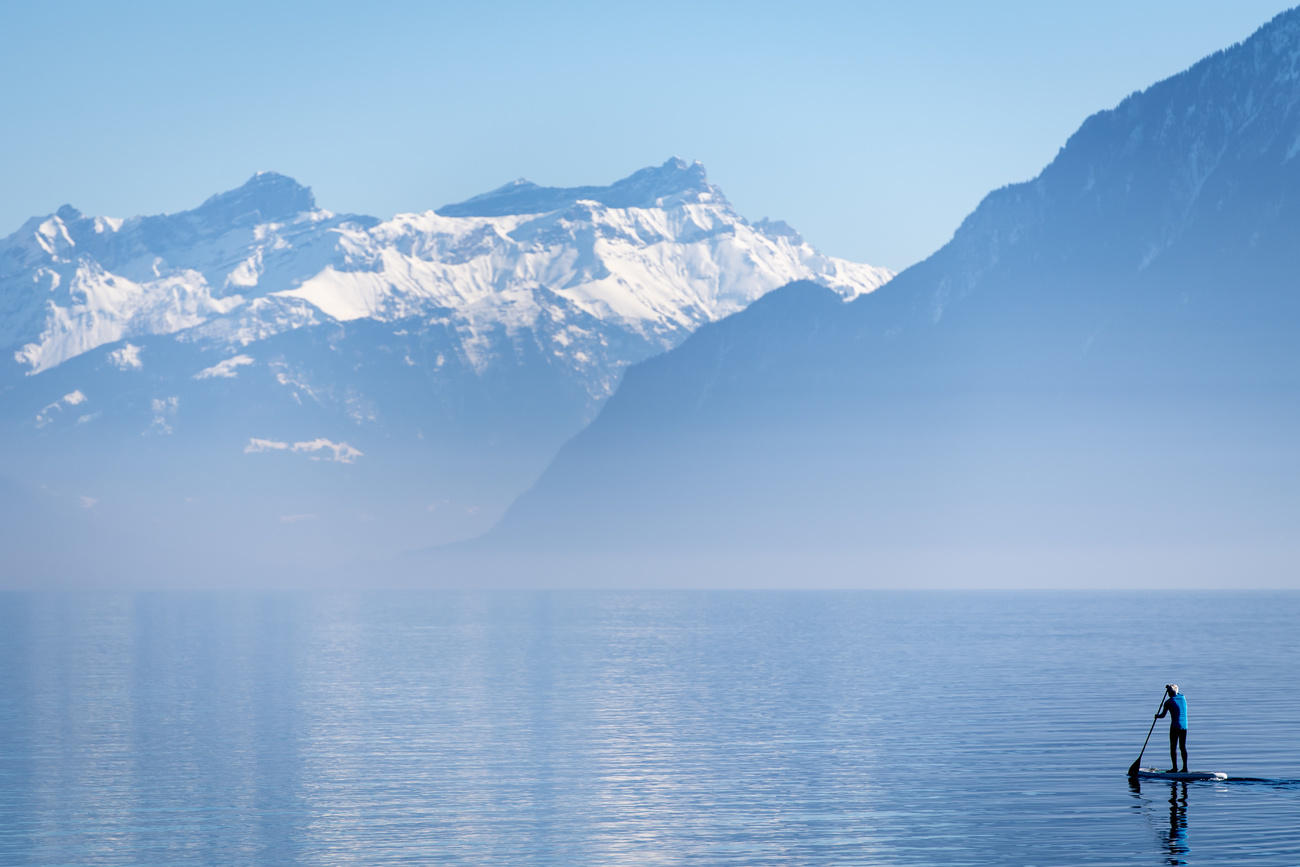
High levels of microplastic pollution recorded in Lake Lugano

Microplastic pollution in Lake Lugano in southern Switzerland is twice as high as in other Swiss lakes.
A studyExternal link carried out in 2020 by the University of Applied Sciences of Italian-speaking Switzerland (SUPSI), published on Tuesday, showed that the concentrations of microplastics – pieces of plastic smaller than five millimetres – in Lake Lugano had not changed much since the previous study in 2018.
Researchers calculated an average surface concentration of 270,000 pieces per km2 on Lake Lugano. This compared to 210,000 per km2 for 2018. In contrast, the pollution level of larger microplastic decreased over the same period.
“These values confirm the high degree of microplastic contamination of Lake Lugano, which appears at least double the average of other Swiss lakes and almost six times higher than the global average. The [microplastic] density found in the lake is also high compared to the values observed in heavily urbanised lakes,” the authors said.
Littering
Littering is one of the main sources of microplastic pollution, the Ticino Office for Environmental and Soil Risk Management told the Keystone-SDA news agency.
The study showed that the plastic pollution varied considerably between Lake Lugano’s northern and southern basins. Microplastic concentrations in the south – mainly textile fibres transported in wastewater – were stable, while they varied hugely in the more urban north, where littering is thought to be the main problem.
The Ticino environment office said the data represented a snapshot taken two years ago. But depending on the weather, microplastic pollution can increase sharply, especially after heavy rain, it noted. As well as Lake Lugano, Swiss lakes Maggiore and Geneva are also heavily polluted by microplastics, it added.

More
Large volumes of microplastics exist in Lake Geneva

More
Rhine has one of highest concentrations of microplastics

More
Microplastics found in six Swiss lakes

In compliance with the JTI standards
More: SWI swissinfo.ch certified by the Journalism Trust Initiative






























You can find an overview of ongoing debates with our journalists here . Please join us!
If you want to start a conversation about a topic raised in this article or want to report factual errors, email us at english@swissinfo.ch.